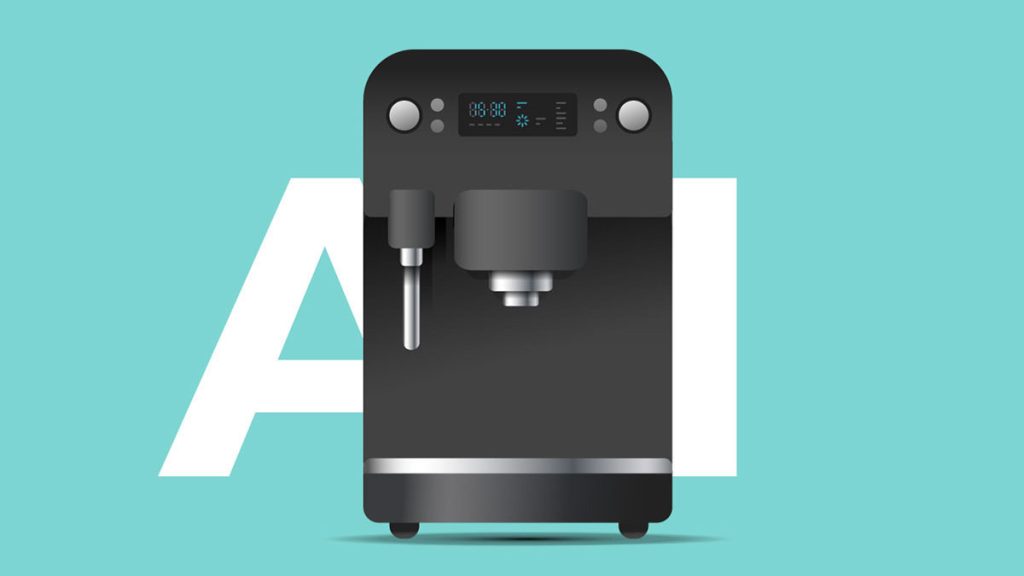
Technology is ingrained in the coffee industry, from the bean on the plant to the cup in your hand. The world consumes roughly 10 billion kilos of coffee annually, averaging around two billion cups daily. From automation to software, technology has integrated itself into several fields that, at first glance, bare it no connection, such as the coffee industry, primarily through Artificial Intelligence (AI). AI coffee has wormed its way into this field in three central departments: farming, retail, and your home.
AI Coffee to the Rescue
Small scale or industry scale, farmers must remain on top and sometimes ahead of their crops’ health and well-being. That’s where AI coffee comes in. It supplies insights into plant development factors (i.e., soil conditions, moisture level, etc.). Furthermore, it warns of potential diseases and pests so farmers can take pre-emptive measures to secure their harvest.
With Brazil being the most significant coffee bean producer, supplying around 3,500,000 metric tons of coffee, farmers rely on this modern technology to keep track of their crops’ needs, especially to combat the effect of climate change on their livelihoods.
Alexandre Pereira Marcos, Natan Luis Silva Rodovalho, and André R Backes, computer science researchers at The Federal University of Uberlandia, Brazil, proposed to train a Convolutional Neural Network (CNN) to learn to identify rust infection. A pathogenic fungus that attacks the underside of coffee leaves causes rust infection, one of the most severe diseases. If not treated, coffee leaf rust can cause a drop in coffee production by up to 45 percent. CNN is a class of artificial neural networks most applied to analyze visual imagery thanks to the existence of convolutional layers that act as receptive fields in the neurons. The robot relies on image processing and machine learning to identify the contaminated leaves and, in turn, isolate which plants need treatment. The results are promising. Furthermore, relying on AI to monitor what remains constant allows the farmers to focus on more unique situations that might arise.
Targeted Advertisement Through AI Coffee
Many coffee companies now provide mobile applications with the sole purpose of tailoring your cup of coffee to your unique taste, thus, elevating the customer experience. By inputting your desired dosage of coffee and creamer or whatever additive you prefer, the companies in question gather the data (i.e., customers’ buying habits, preferences, patterns, etc.) and look at the numbers to deduce and speculate future trends among consumers. They can now hypothesize what time of the year is most profitable to carry specific varieties in stores, and often, they are correct in their estimations. With such information on hand provided by AI coffee, companies can now adjust the inventory to meet the demand.
Facebook is a prime example of AI-based targeted advertisements. Facebook Lookalike has introduced a new AI feature. Through Lookalike Audience, you reach new customers likely to be interested in the advertised business due to similar characteristics to the existing audience. It uses an existing Custom Audience that you select for its source audience. The system relies on information such as demographics, interests, and behaviors from the source audience to find new “targets.” When creating the Lookalike Audience, you can use a percentage range to choose how closely you want your new audience to match your source audience.
Pongsakorn Limna, Supaprawat Siripipatthanakul, and Bordin Phayaphrom conducted a study to explain the role of the adoption of Big Data Analytics and AI in coffee shops in Krabi, Thailand, and its effect on brand authenticity, brand sentiment, and customer services. They concluded these services help companies promote value in various ways, including but not limited to targeted advertisements on applications utilizing Artificial intelligence (AI).
AI Coffee, From the Coffee Shop Straight to Your Home
The functionality of AI coffee when it comes to brewing your favorite cup of coffee might still follow you home as an AI-powered, Fully Automated, Voice-Controlled Coffee/Tea Maker is in the making. The idea behind this project is a fully automated coffee/tea maker which you turn on and control using voice commands. The AI coffee maker processes voice data in real-time. The system initializes when you call the correct wake. Identifying the drink relies on successive words. It can make life easier for those struggling with a disability.
Final Thoughts
Farmers use AI coffee to monitor their crops and harvest quality coffee beans. Meanwhile, retailers rely on it to enrich the customer experience, collect relevant data, and efficiently manage inventory through AI-based mobile application features. Smart accessible machines similar to AI Coffee are examples of the future uses of AI Coffee, both commercial and noncommercial. Due to climate change, the coffee plant might be on its road to extinction, but it won’t be the only one. However, AI software, such as AI coffee, might be the solution we need for a greener future.
Inside Telecom provides you with an extensive list of content covering all aspects of the tech industry. Keep an eye on our Intelligent Tech sections to stay informed and up-to-date with our daily articles.